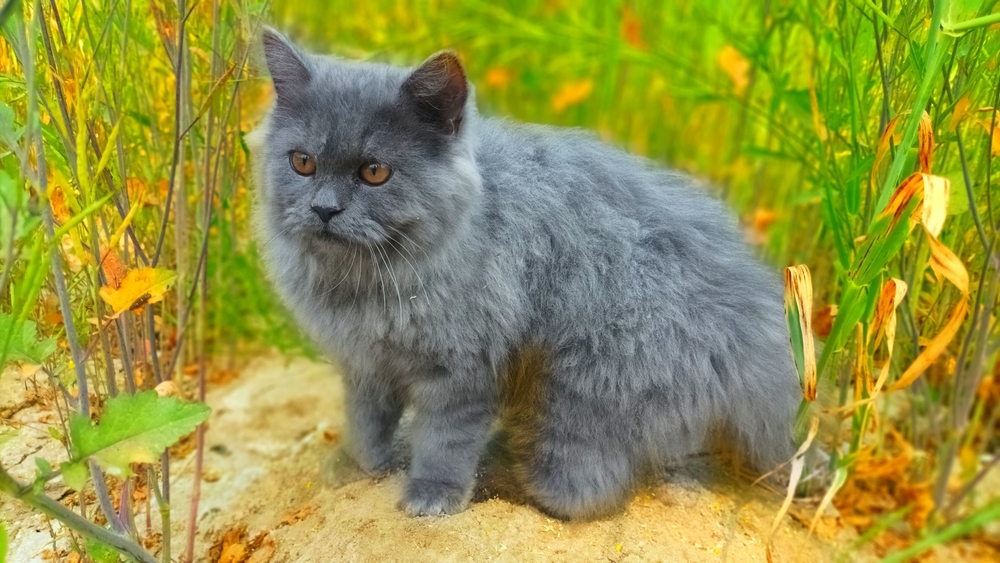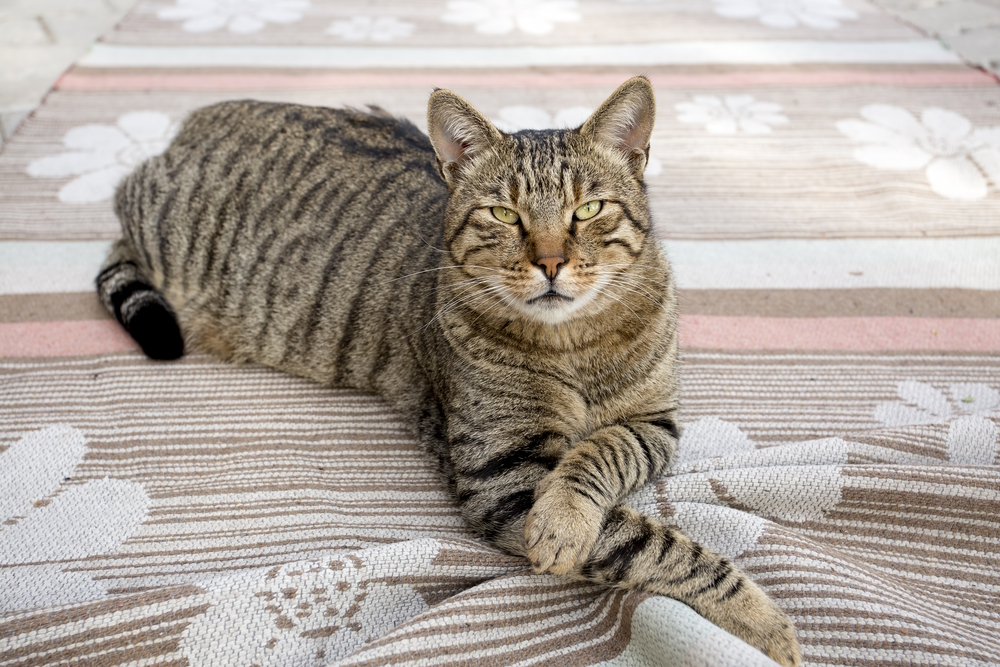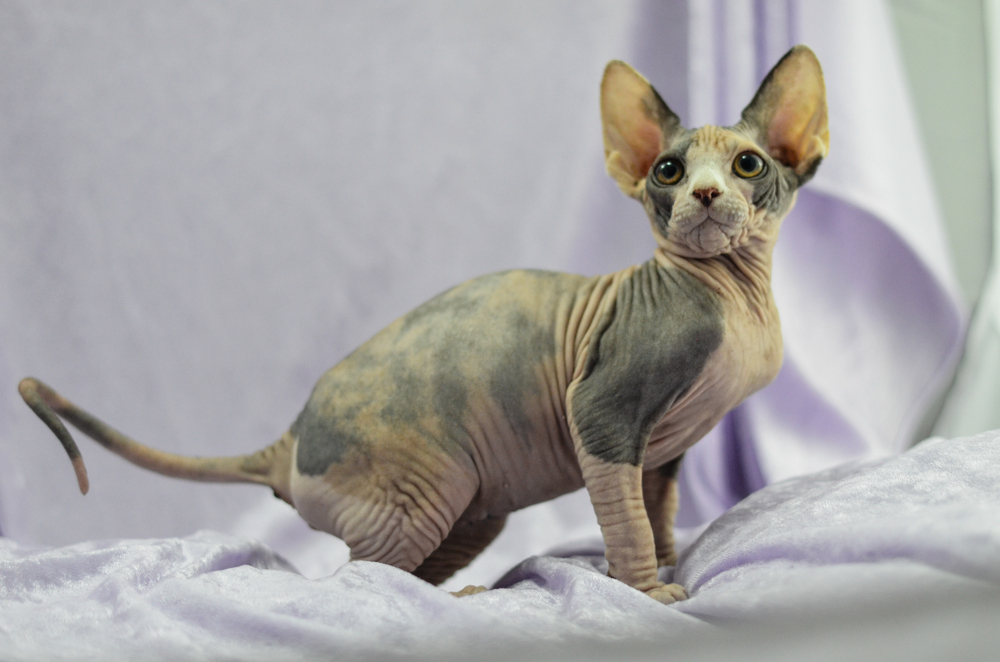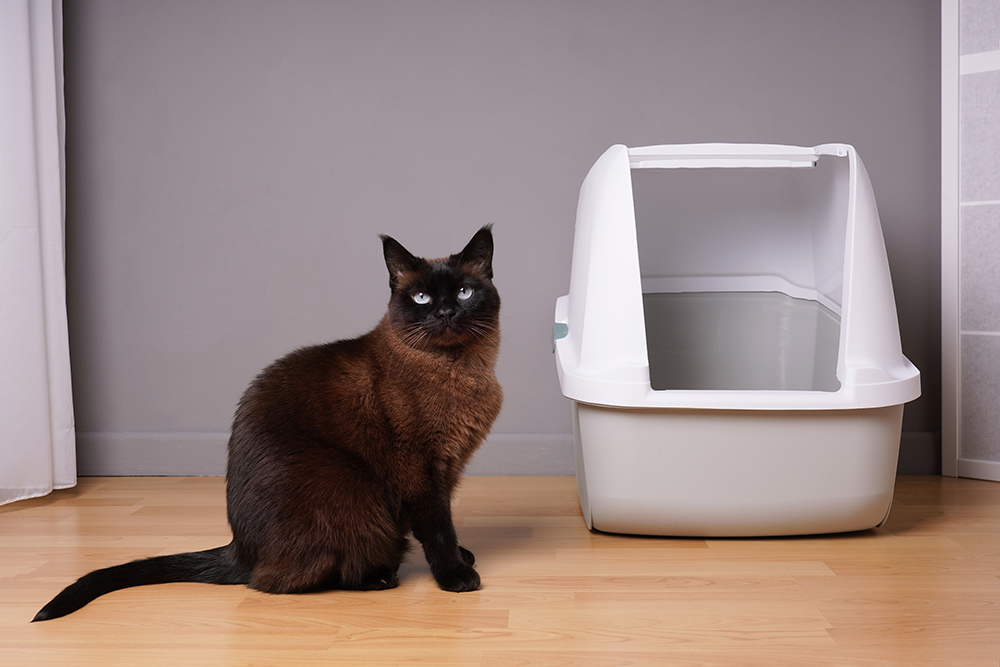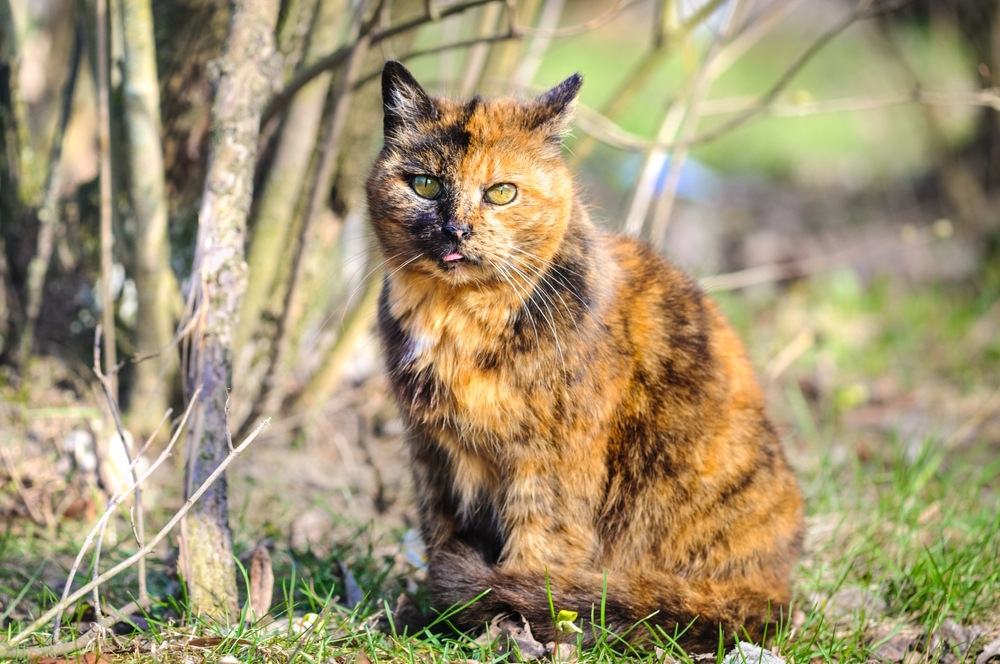Click to Skip Ahead
When it comes to the question of whether American Shorthair cats are hypoallergenic, the straightforward answer is no. American Shorthairs, like most cat breeds, are not hypoallergenic. They produce allergens that can cause reactions in sensitive individuals.
However, this doesn’t mean people with allergies can’t enjoy the companionship of these lovable felines. It just requires taking some extra precautions to maintain a healthy and safe environment for both the cat and the allergy sufferer.

Understanding Allergies to Cats
Before we delve deeper into managing allergies around cats, it’s essential to understand what causes these reactions. Contrary to popular belief, cat allergies are not triggered by cat fur but by proteins that cats naturally produce, which can be found in their saliva, urine, and skin. The most common allergen is a protein called Fel d 1, found mostly in cat saliva 1.
When cats groom themselves, this protein attaches to their fur and, once dried, becomes airborne (in a form known as dander). The allergen also spreads around as cats shed fur. It’s these allergen particles that allergy sufferers react to.
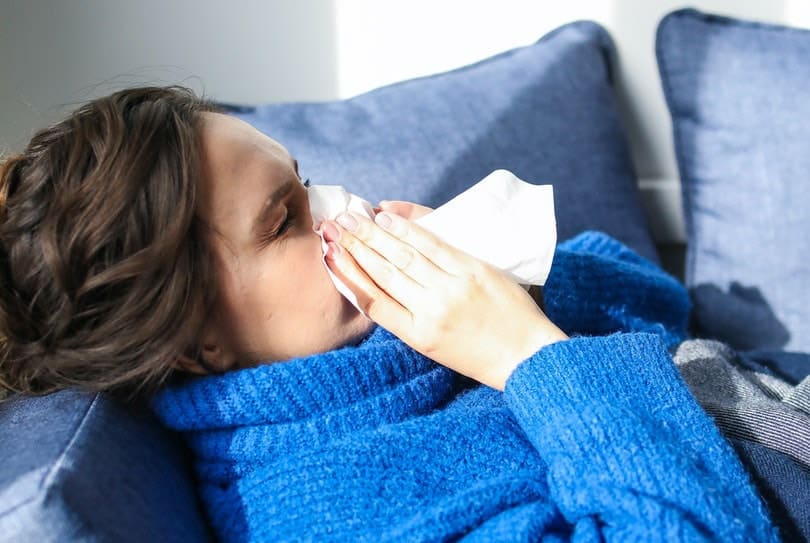
Do American Shorthair Cats Shed?
American Shorthair cats, like all cats, do shed. Adding to that, their coat is dense. Plus, they have a thick undercoat that they shed seasonally, typically in the spring and fall. The shedding can lead to an increase in airborne allergens, as dander and saliva-dried fur become detached from the cat.
However, the amount a cat sheds can vary widely depending on several factors, including diet, health, and the time of year. The good news is that ensuring your cat is healthy, well-fed, and regularly groomed can help to manage shedding. Subsequently, it’ll help control the amount of allergens present in your home, too.
Shedding is a normal process for cats, and it’s important to remember that the presence of shed fur isn’t the primary cause of allergies. It’s the allergenic protein that’s often carried on the fur that causes reactions in sensitive individuals.

Which Cat Breeds Are 100% Hypoallergenic?
While many people wish for a cat that is 100% hypoallergenic, the reality is that no such cat exists. All cats produce the Fel d 1 protein. The level of this allergenic protein varies from cat to cat, and some breeds are thought to produce less of it than others.
Breeds often referred to as hypoallergenic include the Siberian, Balinese, Cornish Rex, and perhaps most notably, hairless breeds like the Sphynx cat. However, it’s essential to remember that hypoallergenic does not mean allergen-free. Even these breeds can cause reactions in highly sensitive individuals.
If you’re considering getting a cat and have known allergies, it’s recommended to spend time with the breed of cat you’re interested in, if possible. Doing so can give you an idea of whether your allergies can tolerate that particular breed. It’s even better to spend time with the particular cat you’re keen on adopting, some individuals might naturally be better suited for you.
Remember, every individual cat, regardless of breed, will produce allergens to some degree. It’s about finding a breed, or even a specific cat, that you can comfortably live with while managing your allergy signs.
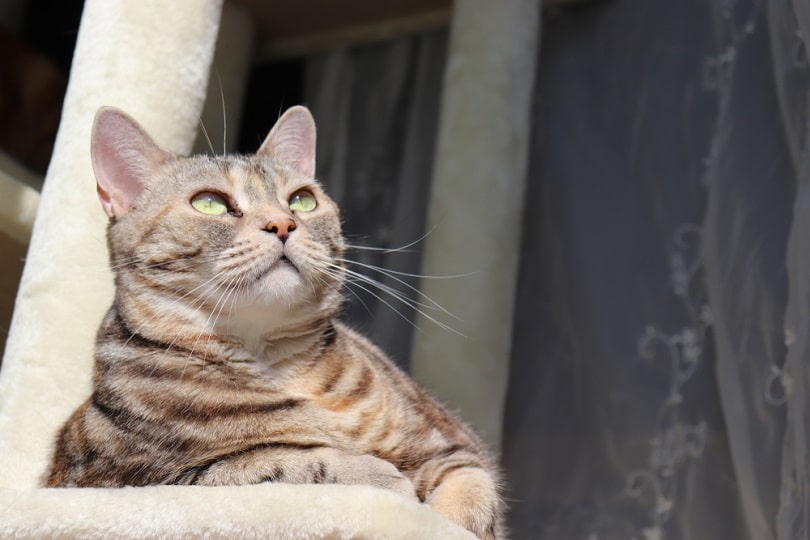

Strategies for Managing Allergies with an American Shorthair Cat
Even if you or a family member is allergic, there are numerous strategies you can employ to manage signs while enjoying the companionship of an American Shorthair cat.
1. Regular Grooming
Regular grooming can reduce the amount of allergens on your cat’s fur. Brush your American Shorthair cat frequently (be sure to do it outside!) to remove loose hair and dander. Additionally, wiping your cat with a damp cloth or hypoallergenic cat wipes can help remove allergens from their coat.
If your allergies don’t agree with you during this process, it’s best to have your cat groomed by a professional or by someone who isn’t allergic to cats.

2. Clean Environment
Maintaining a clean home environment is key. Regularly clean and vacuum your home, particularly areas where your cat spends most of its time. Using a vacuum with a high-efficiency particulate air (HEPA) filter can help reduce allergens. Focus cleaning efforts on carpets, upholstery, rugs, couches, beds, and other furniture covered with fabrics; dander is more concentrated in these areas than on tiled floors.
Dander is also able to remain airborne for a long period of time, therefore, cleaning shelves is important too.
3. Air Purifiers
Investing in a good quality air purifier with a HEPA filter can help further reduce allergens in your home. Air purifiers can capture airborne allergens and help maintain better air quality.
4. Bathe Your Cat
If your cat is not opposed to being given a bath, doing so can temporarily reduce the amount of dander they produce. However, this isn’t a good long-term fix, as levels of dander and allergen production can return back to normal in as little as 2–3 days. However, it is an option if you find yourself in a scenario where a relative or friend with allergies is dropping by for a weekend or so.
- Only Natural Pet Shampoo - Our vegan, plant-based formulation is made with safe and natural...
- No Soap - A cat and dog wash free from soaps, glutens, dyes, DEA, sulfates and phthalates means it's...
- Colloidal Oatmeal - Formula soothes and nourishes dry, irritated skin, providing itchy skin relief...
Although there is no such thing as a completely hypoallergenic pet, regular bathing can help reduce the amount of dander allergens in their fur and the air. We recommend Hepper's Oatmeal Pet Shampoo for this task. Click here to order yours today
At Catster, we’ve admired Hepper for many years and decided to take a controlling ownership interest so that we could benefit from the outstanding designs of this cool cat company!
5. Limit Access
Consider keeping your American Shorthair cat out of certain areas of your home, like your bedroom, to create an allergen-free zone where sensitive individuals can retreat to.
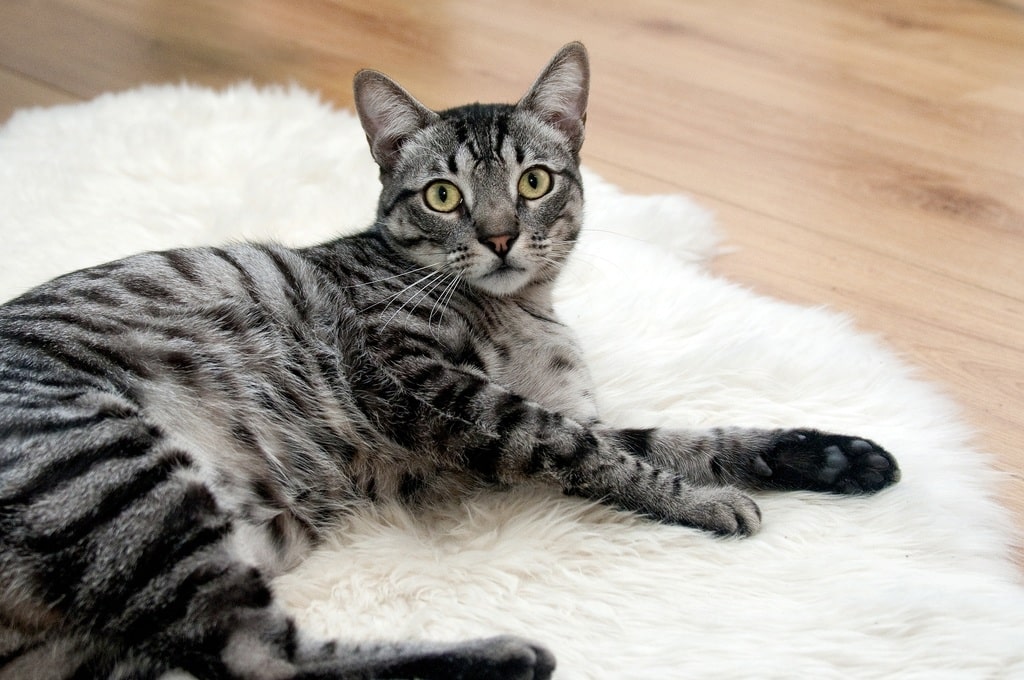
6. Allergy Medication and Immunotherapy
For some people, over-the-counter or prescribed allergy medications may help manage signs. In more severe cases, allergen immunotherapy, such as allergy shots, may be an option. Of course, you should always check with your doctor first to determine if that’s the best course of action.
Please be mindful that people with severe allergies should not consider adopting cats if their doctors caution them against doing so.
7. Assess Yourself Honestly
If your allergic reaction is severe and not manageable, then perhaps you should consider not adopting a cat, as your inability to spend much time with your cat will negatively affect them too. It’s completely acceptable to acknowledge your limits with regard to an allergy and decide that a cat isn’t the right pet for you.
There are other ways to help cats in need instead of just adopting them; for example, you can virtually “adopt” pets at many shelters and provide for their food, medication, and other needs while they await adoption.

Conclusion
While American Shorthair cats are not hypoallergenic, don’t let this deter you from inviting one into your home, even if you or a family member has allergies. With some proactive strategies and proper care, you can significantly reduce allergens in your home, making it possible for everyone to enjoy the love and companionship of these wonderful cats.
Featured Image Credit: Lalandrew, Shutterstock



